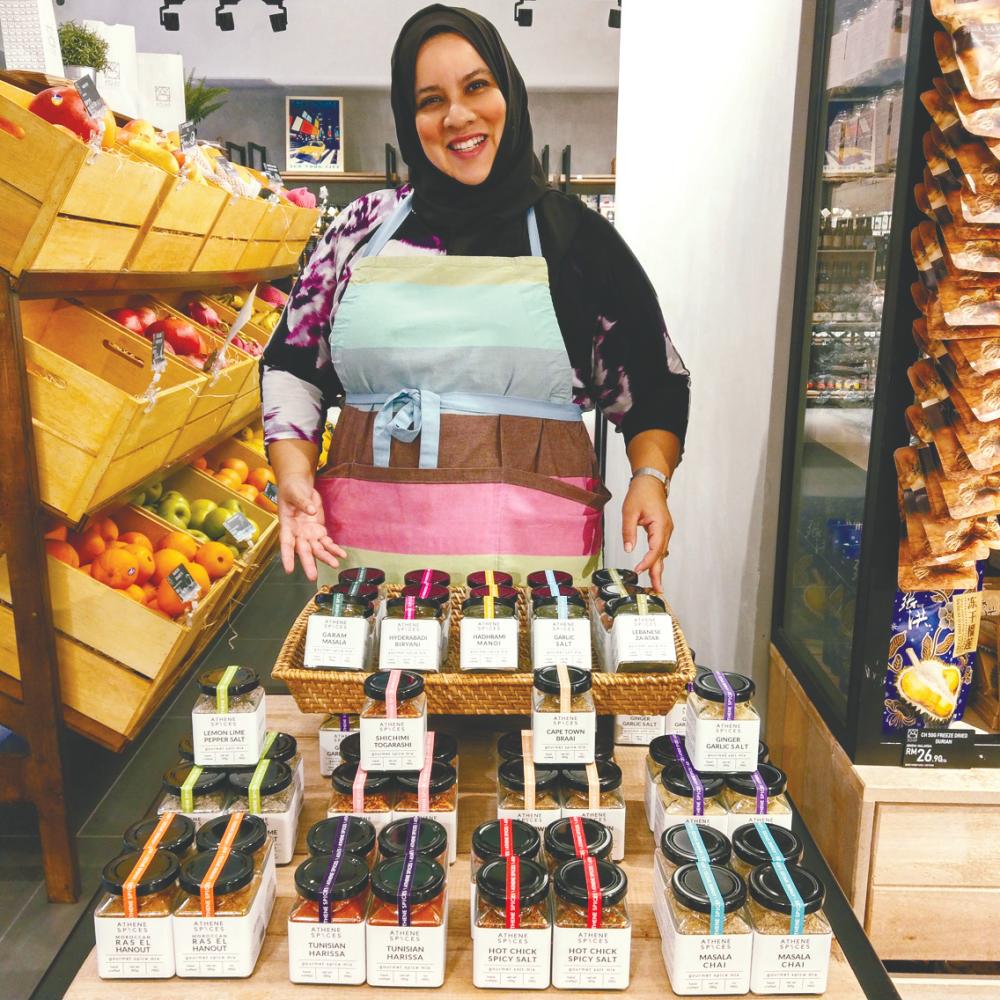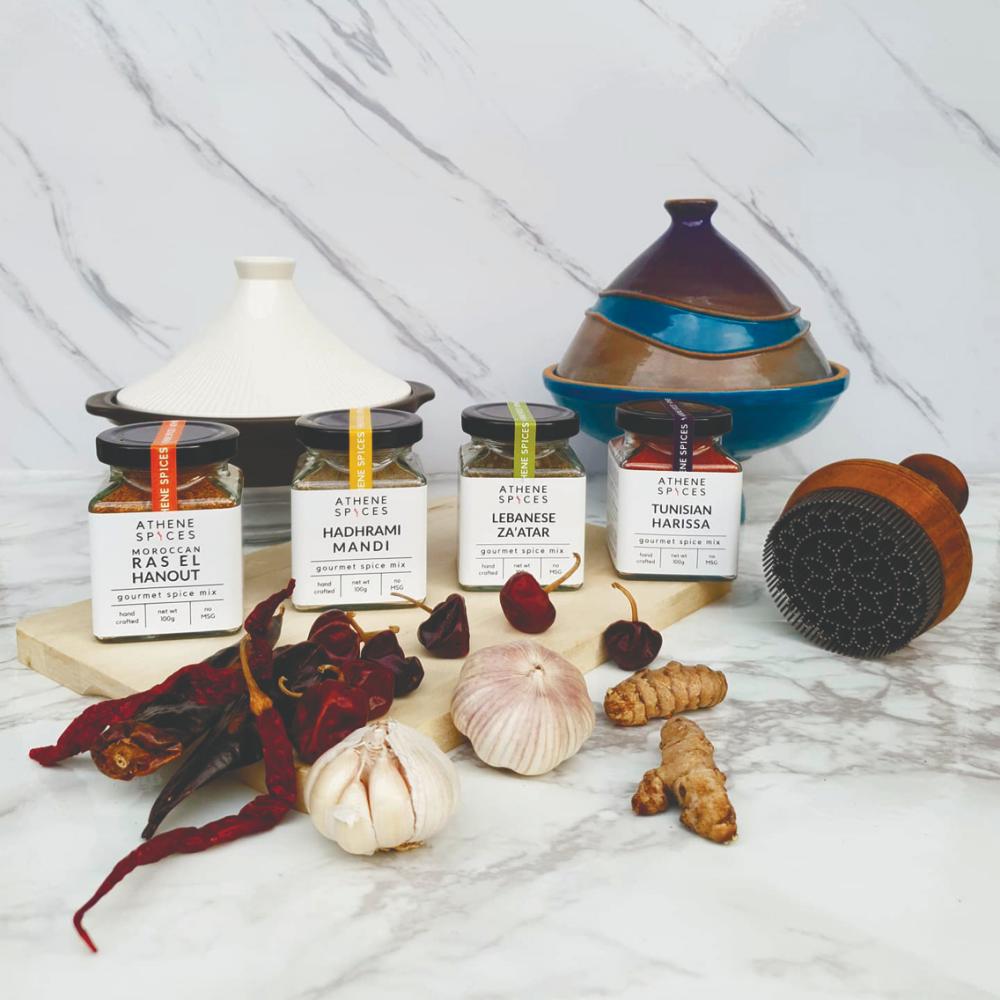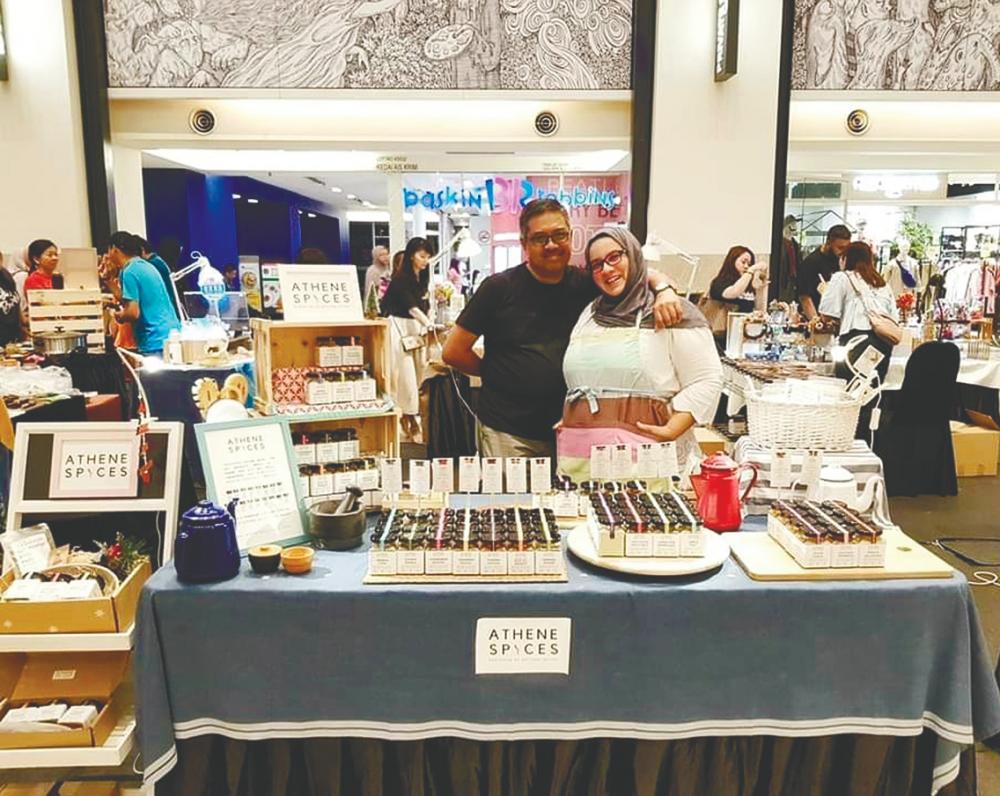PENANG-born and bred, Faten Rafie comes from a multicultural family. Her father is of Arab descent, while her grandmother is Japanese by birth but was raised by an Indian-Muslim family.
Growing up, Faten had always enjoyed cooking. She teaches at a cooking school in Penang, while managing her brand, Athene Spices, with her husband, Azizi Hassan.
She said: “I have been cooking since I was six or seven years old, and I’ve always liked cooking. My real passion has always been food.
“It was my father’s dream to open a restaurant, and people encouraged us to open one, because from time to time, my family did catering. However, I don’t have the energy or the time to run a business, because I’ve seen how difficult it can be.
“Actually, I got into the [spice] business by accident. Whenever you make spices, you will end up making a little too much. So that happened to me one day. I made too much of the Hot Chick Spicy Salt, and I decided to share it with others during a blogger meetup in KL (I was actually a lifestyle blogger before this).

“A few of the bloggers started blogging about my spice, and people started to ask about it. So, that is how Athene Spices was born.
“We started with zero expectations, just doing it for the love of it. [It was only] in the second year that we decided to do it full-time, and by the third year my husband quit his other business and focused on Athene Spices.
“We have been told that the business has a lot of potential, but I am still not going to take any [business] loans and get myself into trouble. So, we are expanding as much as we can afford.”
Through conversations with others about food, Faten realised that people shy away from cooking certain dishes. To counteract this predicament, she intentionally creates spices that would ease the process of cooking.
“Over the past 10 years, I see fewer people cooking, yet they complain about how unhealthy and expensive outside food can be. People are always afraid of experimenting in the kitchen because they are afraid of spoiling the dish.

“Therefore, I see my spices as a tool to help people cook certain recipes. From what I have observed, my customers have gained more confidence in their cooking and are more adventurous with their choices of food to cook at home.
“My spices come with recipes, and I have tweaked and simplified various complicated recipes. So, when you use our spices, you do not need to add too many additional ingredients. So, you would just add simple ingredients that you can find in your kitchen, like onion or garlic.
“For instance, in our Hadhrami Mandi spice, we have even added saffron into the mix, so you don’t have to buy extra spices for the dish.”
From the multipurpose Hot Chick Spicy Salt (still a best-seller), Athene Spices grew to about 20 different spices within the time span of six years. Faten claims that she does not ‘Malaysianise’ foreign spices, and instead has a separate range of Malaysian spices, such as the Percik Kelantan.
Faten admits that tourism in Penang was quite bad last year, which affected the business, as her sales rely heavily upon tourists. This influenced her decision to open a pop-up store in Kuala Lumpur.
“We have a few stores carrying our products in Penang. The first pop-up store we had was last year in Kuala Lumpur. We had to choose a location where our products would appeal to people who appreciate good food, so we chose Publika. As a result, it increased our product awareness, which led to an increase in sales.”
Faten acquires most of her spices from local suppliers, but she processes them herself. During the movement control order (MCO), their business increased. However, there were other issues she had to deal with.
“Initially, I had a lot of headaches because I could not get the supplies I needed, especially the bottles. My supplier is in Ipoh, so we had to get a letter from the Ministry of Agriculture, which granted us the permission to travel to get our supply, which was after a month of low stock.
“Raw ingredients-wise, it is still a challenge. I am not getting the quality of ingredients that I am used to. Moreover, throughout the MCO period, a lot of suppliers no longer give you credit, and everything is by cash now. So that is another issue.”













